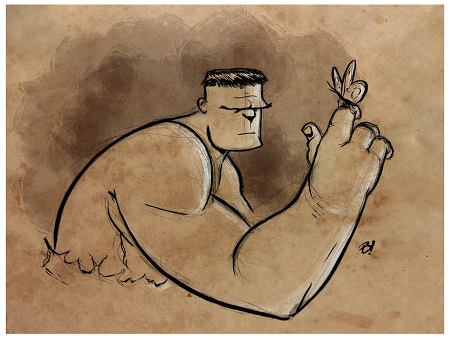
If you Google the word "subsidized" the results found might be a little surprising. Most of the content generated is going to be about government subsidized loans vs unsubsidized loans. Yes, college degrees are expensive, and it's one of those things that many still view as a necessary thing to get. Not for long I think, but that's another story.


The actual definition of 'subsidized' is much more generic than the common link to college loans. It just means that some percentage of something is being paid for by another party. Within the context of government this could be interpreted as socialism (or even communism), which many of my readers would vehemently oppose.
Why do people oppose socialism and communism? Because they don't scale. They give too much power to too few people. They are inefficient because the money has to be stolen from the peasants and funneled through multiple intermediaries that rake off the top of the pot.
It also doesn't feel fair for those who work hard and have a strong work ethic to be "paying for freeloaders". Of course that's a very reductive and inaccurate viewpoint. It is not my viewpoint, but it is one that others will argue, which does give it some validity in the world of 'perception is reality'.
But honestly that's not even the real reason that socialism and communism and capitalism end up so ridiculous in practice. One of the core problems with government is that they are historically very bad at generating real value. Famous even. You tell me, off the top of your head right now, one way that government makes money. If you said taxes: that's the problem. Try again. No? Nothing?
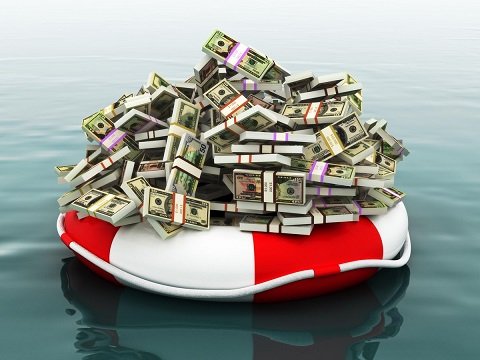
Think about how crazy that is.
Why are all governments just these ridiculous parasitic vampires running around stealing money from their own citizens instead of building value in real ways like everyone else is doing? Why don't governments have profitable business models that actually generate income? Why is all the money that the government spends: debt that just piles up year after year getting bigger and bigger with no end in sight? Truly, I do not have the answer to these questions. I've never even thought about it before, which is also strange. We have a tendency to accept things because that's the way they've always been. Is what it is.
What was this about? Subsidy?
Right, getting back on track, a subsidy is just when one party helps another party pay for something. Hive has many subsidies. In fact we can think of all of the inflation we allocate to the network as a subsidy.
- Block production is subsidized.
- Blogging is subsidized.
- Curation is subsidized.
- The decentralized hive fund is subsidized.
- Interest rates are subsidized (both HBD and Hive).

The title of this post is "Hive Subsidized Debt" so apparently I wanted to talk about HBD interest rates for some reason? Beats me, but also with all the regulators losing their mind over UST it's a very interesting topic of discussion.
Pegging HBD to Gold Would be Pointless
- HBD is not USD.
I've gotten into several disagreements over the last few weeks about the gold standard. Nobody seems to realize that pegging paper currency to gold isn't a good idea. You know what happened during the Gold Standard? The Great Depression started in 1929. You know when the Gold Standard ended? 1933. Why? Because the Gold Standard was a big big reason the Great Depression happened in the first place. Why would we try to go back to that system as if it could save us? Not only is it not possible to do this within the current system, it would have drastically negative unintended consequences. We need to move forward, not backward. Gold is not a good form of money. That's why nobody uses it. It only made sense before we had the technology to print value digitally.
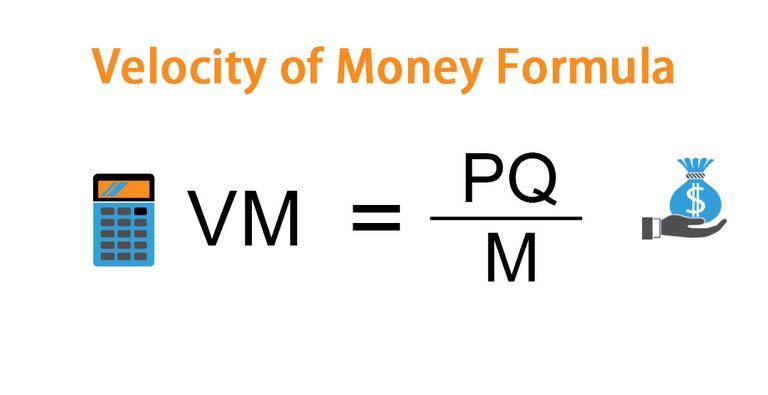
Velocity of money
No one wants to spend money if the money keeps gaining value over time. This leads to hording money instead of economic expansion. Stores-of-value do not make for good currencies. This is a known fact, and basically proven by Gresham's Law. Bad money drives out good money from an economy. People want to spend the bad money. They don't want to spend the good money.
Therefore HBD being pegged to USD instead of Gold is exactly what we want. We want HBD to be bad money, by design, that's the entire point. We want people to spend it. We want the network to owe back less debt than was issued. The guaranteed declining value of fiat allows for all of these things to happen using nothing but a price feed from the witnesses. It's a very nifty system.
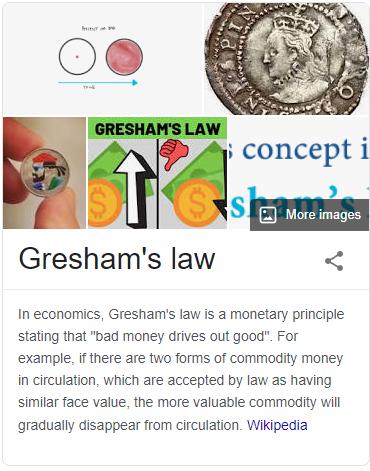
But again, HBD is not gold
HBD actually shares more 'genetic' code with Hive than it does with USD. HBD is closer to Hive than USD. HBD is a derivative of Hive, and is explicitly dependent on Hive in every way. This becomes even more apparent when we look at subsidized HBD interest rates.
Wow, 20%... that's... a lot... right?
Yes, a 20% APR (22% APY) is very very very high for an asset pegged to USD. This is the ultimate subsidy that makes HBD not USD. HBD is loosely-pegged-USD + 22% variable APY. Because it is not possible to get 22% variable APY anywhere on the planet with USD... that means that HBD isn't anything like USD at all. From a value perspective, it's superior as long as we can keep the debt-ratio below the haircut. Sure, that's a big ask, but we've been doing quite well ever since HIVE >> HBD conversions came into play.
While USD is constantly going down in value, HBD is constantly going up, because once we add that 22% APY into the mix this will offset all the losses and inflation of USD. This means that as long as USD is inflating less than 22% a year, Hive is subsidizing HBD and we are willing to take a loss on the debt we are issuing. On average, we have to pay back more value than we are printing, and that might sound bad until we get to the next part.

But what if we never have to pay back the debt?
Welcome to the Pyramid Scheme that is capitalism!
Enjoy your stay!
This is the thing we need to remember about debt, especially when we are the ones who are issuing it (and not the ones who own it). Given enough demand for HBD, conversions back into Hive will never occur, and we never have to pay back the debt.
As always, we can think of money as water.
And while we might have to convert a million HBD back into Hive during any given time, there's still a certain level of demand left for HBD that guarantees that all of it will never be converted. The more demand and utility our debt has, the more we can just print out money knowing we'll never have to pay it back. Now that Hive >> HBD conversions are in play, this entire process happens in a transparent automated way that pumps Hive every time demand for out debt increases.
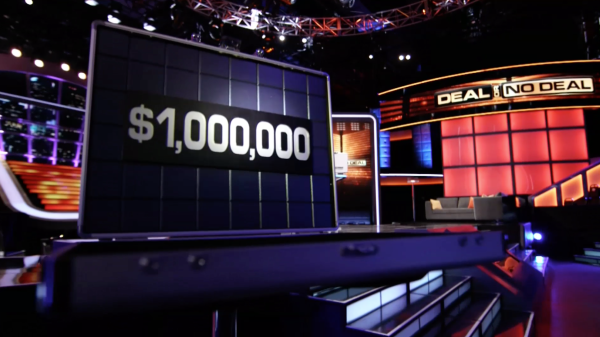
Deal
Therefore, a 20% APR on HBD ensures that demand for HBD is quite high, to the point that we can be almost certain that a bank run will not occur, and we can essentially leverage our utility into a bunch of "free" money. The more apps are built on top of HBD, the more utility and free money we will get.
Ultimately the thing we will need to be very careful about is the debt ratio. Imagine that Hive went x10 and the debt ratio was maxed out. This could be a very bad sign that our debt has become unstable and we'd get hit hard during the next bear market. It is in cases like this that the witnesses need to not be greedy and lower the APR of HBD when the debt ratio is too high (lowering demand on purpose during the bull market), even if that action brings the price of Hive down due to the lowered demand for our debt. It's going to take very steady hands to be able to navigate this situation as Hive scales up.
https://hive.ausbit.dev/hbd
As it stands right now, our debt ratio is below 5%, which is very good. Not only that, it's basically been below 5% ever since we raised rates to 20%, which again... is a very good sign and shows that not very people are taking advantage of this unheard of deal (RIP UST). Thus the stability of the system stays intact. If everyone was doing it (like LUNA/UST) then we'd be having a different conversation. Institutional adoption of Hive will be a very awkward process. Not looking forward to that.
What else is subsidized?
Anything that society wants, but can't fund itself or be made profitable in the short-term. The sustainable Green initiative is a good example. Elon Musk gets "carbon credits" for making electric vehicles. Citizens get subsidized for putting solar panels on their rooftops. Scholarships. Research grants. That kind of thing.
And this is very much a doubled-edged sword. Subsidization is basically an investment. That investment may turn out to be a winner or a loser in the future. Many would argue that subsidizing solar panels is completely pointless because of how many resources it takes to build them and how much pollution that process creates vs the small amount of electrical output it produces over time. I'm not sure if I agree with that assessment or not, but these things are coming into the limelight more and more as the push for Green energy continues.
Ironically my readers already know that I believe that Bitcoin is the ultimate solution to sustainable practice. While all the propaganda points to Bitcoin as a "waste of energy", it truly is the exact opposite. It's no secret that the biggest waste of resources lies at the center of government and the military industrial complex. The powers that shouldn't be constantly make up lies about Bitcoin because it threatens their hegemony. It's blatantly obvious to those of us here in the space; not so much to those on the outside looking in. That's what makes it such excellent propaganda in the first place.
Conclusion
What is subsidy? Is it socialism? Is it communism? Is it an investment? All of the above? It's a very generic term. Paying for your kid's college tuition out-of-pocket is technically a subsidy (between you and your kid). In the context of government, it is very much socialism at its 'finest'. Many do not like the idea of it, not because it's a bad idea, but because they view it as theft from one group and giving it to another that doesn't deserve it.
It should be obvious by now that crypto flips the board. We make our own rules. Crypto is not forced on anyone. This is opt-in governance. If your community votes to fund something that you don't agree with, worst case scenario you can leave and join another community that shares your values (in the case of Bitcoin, they subsidize nothing as block rewards get slashed to zero). That's the magic of governments that exist within digital environments. Very little overhead cost in jumping from one to another. That and we can participate in multiple communities simultaneously.
The combination of HBD + high interest rates shows us that HBD isn't what it's pegged to, but rather HBD is whatever we program it to be. As a derivative stable-asset soft-pegged to a 3-day price average, it is even more stable than USD over time because the interest rate subsidy makes number go up instead of number go down. This is a very valuable utility to have, that will hopefully multiply onto a lot more demand later as development continues, eventually pumping Hive in the process. The grind continues.
Posted Using LeoFinance Beta